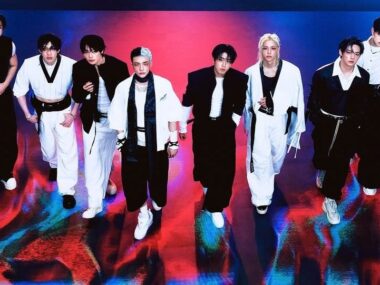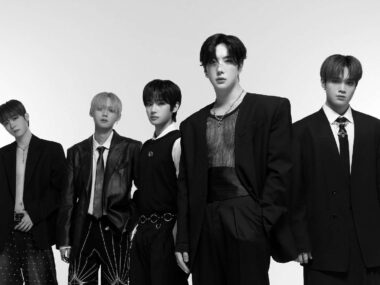I Run wasn’t supposed to be a controversy. It was supposed to be the moment HAVEN arrived.
The track had all the early signs of a breakout hit. It blew up on TikTok before it even came out. It shot to the top of Spotify’s music charts, reaching number eleven in the United States and number twenty five globally.
Labels were planning to sign the duo, consisting of British producers Harrison Walker and Jacob Donaghue. The project itself felt fresh Everything pointed to a massive hit.
Instead, it turned into an example of how messy things get when record labels even suspect the use of AI.
The accusation of using AI for the vocals
The trouble started when listeners noticed that the uncredited female vocal sounded a lot like British R&B singer Jorja Smith.
It was close enough that Smith posted a video featuring the track on TikTok, questioning if it was her voice or an AI version of it. That question alone was enough to plant doubt. It made people listen for similarities they might not have cared about before.
HAVEN said the vocals weren’t Smith’s. They said the voice on I Run came from Walker, who transformed his own voice through Suno’s AI tools to create a female tone. They said they didn’t try to copy any specific artist.
Yet once the idea of a Jorja deepfake was out there, that explanation wasn’t enough to resolve the situation. Because the real issue wasn’t whether HAVEN meant to sound like her. It was whether Suno used Jorja’s voice as training data for its tools.
The takedown problem that no one knows how to solve
That’s where this gets complicated. Sony’s The Orchard (where Jorja Smith is signed as an artist) filed takedown notices. So did the RIAA and the IFPI.
The song disappeared from Spotify and TikTok. Billboard even blocked I Run from ranking on their charts. The official reasons ranged from copyright concerns to potential misrepresentation of an artist’s likeness.
Here’s the uncomfortable truth. No one in this process can actually prove their core claim. The Orchard can’t prove that HAVEN intentionally mimicked Jorja’s voice. HAVEN can’t easily prove that the vocals belong to Walker, unless platforms like Spotify start to accept uploads of stems or session files, which they don’t.
The entire fight sits in this gray area where nobody can definitively prove anything. Yet the consequences are very real.
The implications for the industry
Suno is already being sued by multiple major labels for allegedly training on copyrighted recordings. If Jorja Smith’s voice ended up in the dataset, that alone could create the resemblance people are hearing.
That’s where the idea of publicity rights comes in. Copyright may not protect the sound of someone’s voice, but likeness laws do. New legislation like Tennessee’s ELVIS Act and the proposed federal NO FAKES Act exists because this problem keeps coming up. Artists want protection. Tech companies want flexibility while platforms want to avoid liability.
When you put all three together, the safest move for a platform is to remove the song first and sort it out later.
The uneven playing field
There is also something messy about who gets targeted.
Broke Records, one of HAVEN’s labels, argued that major label acts use the same AI tools without getting pulled. They called the treatment inconsistent, even discriminatory.
Whether they’re right or not, it highlights a real issue. Independent artists are often the first ones punished for behaviors the rest of the industry is normalizing.
HAVEN’s attempt to move on
HAVEN has recorded a new version of I Run with human singer Kaitlin Aragon, who went viral covering the original.
It’s a strategic reset. Hopefully, it’ll put the attention back to the song instead of the controversy surrounding it. It also gives the duo a chance to keep regain their momentum without the legal risk of the original hanging over their heads.This whole situation proves how inconsistent the rules around AI and music still are. HAVEN didn’t need to intentionally mimic anyone to trigger a takedown notice. All it took was one similarity, one moment of doubt. The current system wasn’t built for situations like this. The drama surrounding I Run shows what happens when a misunderstanding can lead to legal trouble. Unfortunately, it’s the indie artists that suffer the most damage.






